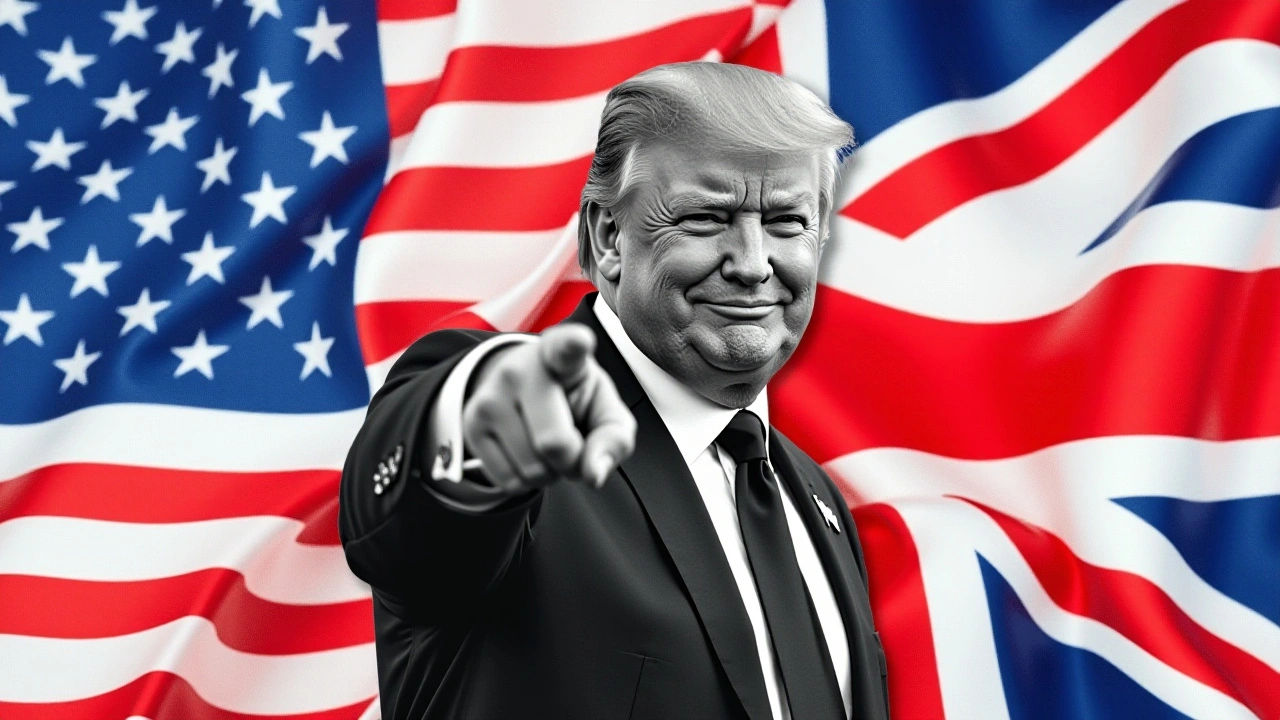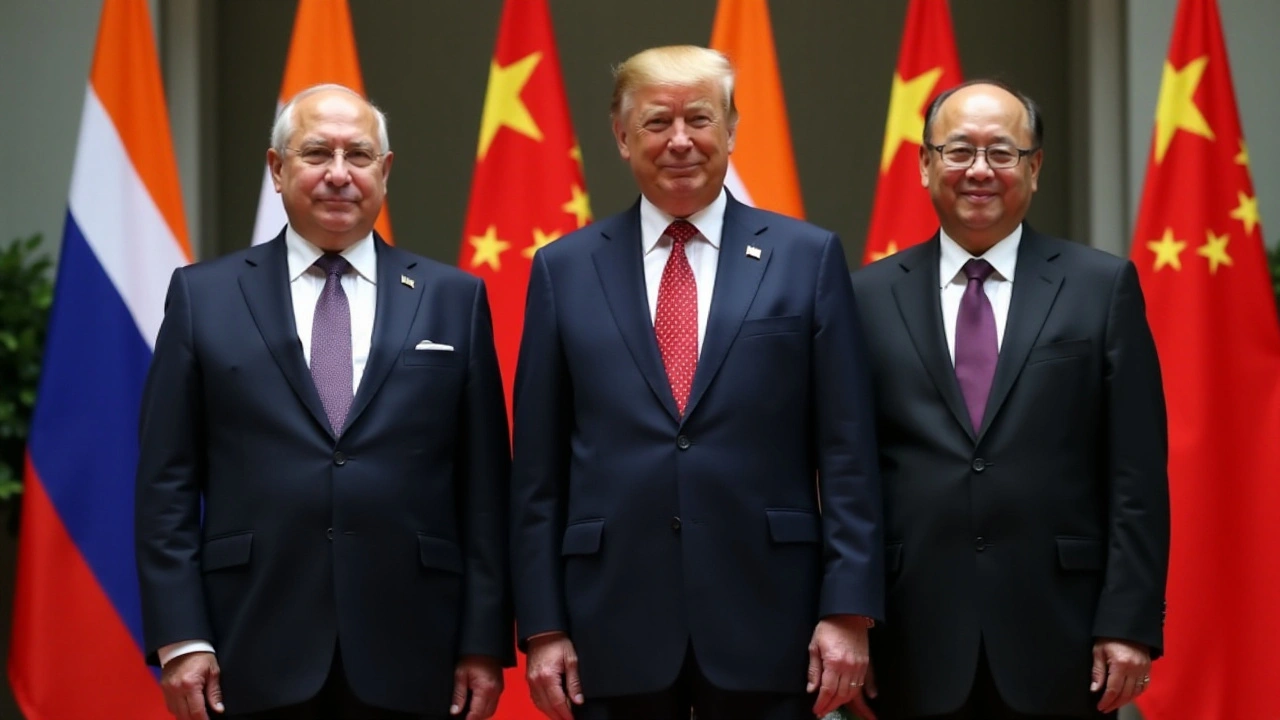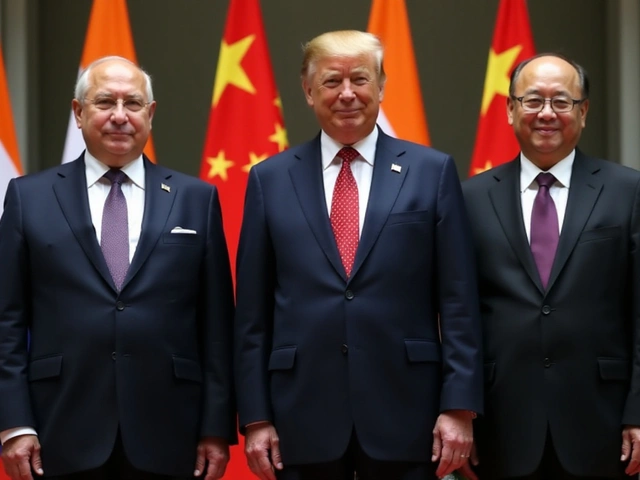In a significant development impacting international economic relations, India has officially declared it is stepping away from any agendas aimed at de-dollarization, a move that comes in the wake of aggressive rhetoric from President-elect Donald Trump. Trump's recent statement threatened a hefty 100% tariff imposition on BRICS nations if they dare to adopt measures challenging the dominance of the U.S. dollar in global finance. This stern warning underscores the potential economic ramifications for countries perceived to be undermining U.S. financial interests.
Trump's Tariff Threat
The context for this declaration is rooted in the broader geopolitical dynamics within the BRICS alliance - Brazil, Russia, India, China, South Africa, along with Egypt, Ethiopia, Iran, and the United Arab Emirates. These nations have been vocal about their concerns regarding the long-held dominance of the U.S. dollar and its frequent use as a tool of coercion and sanctions. Trump, known for his unorthodox and often unpredictable foreign policy stances, has made it clear that any shift away from the dollar, especially the adoption of a BRICS currency, would be met with severe economic penalties.
India's Official Stance
Responding to these threats, the Reserve Bank of India's (RBI) Governor, Shaktikanta Das, emphasized that de-dollarization is not on India's current economic agenda. Addressing these concerns, Das stated, "Nobody is talking about or thinking about de-dollarization. There is no step we have taken to de-dollarize." The governor's remarks serve as a reassurance to international markets and the U.S. administration that India does not intend to destabilize the prevailing monetary order.
His comments also reflect a broader strategic approach by India to maintain its economic stability amid simmering geopolitical tensions. Governor Das further mentioned that while the idea of a BRICS currency had been floated by a member, no concrete decision has been reached. This pragmatic stance highlights India's desire to mitigate risks and maintain a stable economic environment as it navigates a complex international economic landscape.
The Geopolitical Implications
The dialogue around establishing an alternative to the U.S. dollar within the BRICS framework is a manifestation of broader geopolitical shifts. Many leaders within the BRICS nations have been cautious about the consequences of unilateral economic policies, especially those that could provoke retaliatory measures from the U.S., a major economic powerhouse. Trump's explicit warning indicates the extent to which the U.S. is willing to safeguard its currency's global supremacy.
India, balancing its intricate network of alliances, remains focused on ensuring economic growth and stability. The potential backlash from the U.S., the world's largest economy, could have far-reaching effects on India's export-driven sectors and overall economic health. Hence, the strategic retreat from the de-dollarization topic appears to be a calculated move to avoid unnecessary economic conflict.
The Future of BRICS Financial Strategies
Despite India's current position, the BRICS nations continue to explore financial strategies that may eventually shift away from dollar dependency. This discussion is driven by a collective desire among BRICS members to reduce vulnerabilities stemming from the U.S. financial system's control and to seek an economic system that reflects the multipolarity of contemporary global power structures.
While the concept of a unique BRICS currency is still in its nascent stage, it symbolizes a potential shift in global economic dynamics where multiple currency systems could coexist. The goal for these nations is to form a more balanced global financial architecture, which could, in theory, lead to greater economic autonomy and resilience against external economic pressures.

Economic and Political Realities
The possibility of 100% tariffs, as threatened by Trump, presents a daunting scenario for any economies that heavily rely on U.S. markets. Most BRICS nations, including India, are aware of the stakes involved and the level of strategic diplomacy required to navigate these rocky waters. The implication of such tariffs could result in disrupted trade relations, impacting not only the countries directly involved but also the global supply chain.
For India, specifically, maintaining a healthy trade relationship with the U.S. remains a priority. The U.S. is one of India's largest trading partners, and anything undermining this relationship could have considerable economic consequences. By clarifying its stance, India aims to both assure its collaborators and avoid provocative actions during this delicate phase of global economic negotiations.
Conclusion
In conclusion, India's reserved position on de-dollarization, amidst BRICS explorations of alternative currencies, is indicative of its cautious economic policy and diplomatic strategy. As global economic power structures evolve and nations seek to navigate these changes, maintaining stable and strategic international relationships remains crucial. India's focus remains on sustainable development and mitigating risks that could impair its economic progress, particularly in light of heightened geopolitical tensions.
In this intricate dance of economics and diplomacy, India's assurances should be seen as part of a larger strategy designed to preserve economic stability while cautiously observing global trends and shifts that could alter the course of international financial systems.



Leave a Comments